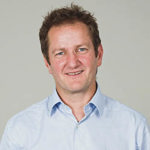There was a distinct note of determination in the air as we all took our seats for the inaugural meeting of the Rough Sleeping and Homelessness Action Group established by the Scottish Government.
It was an honour to Chair a group of such enthusiastic and knowledgeable people (you can read the full list of those involved here) working to support homeless people across Scotland. Local Government and Housing Minister, Kevin Stewart MSP, joined us at the start of the meeting to express his thanks to the members for dedicating their time over the next six months to determine and inspire the action needed to tackle temporary accommodation and end rough sleeping in Scotland once and for all. He is determined that the work of the group and the Scottish Government’s £50million Ending Homelessness Together fund over the next five years will ‘make lasting and significant change in Scotland’.
I was keen for us not to dwell or dissect the problems at hand as our focus is very much on the action that can be taken to solve homelessness in Scotland. It was, though, important to have a bit of scene setting at the start which is why I’d asked Professor Suzanne Fitzpatrick of Heriot Watt University to outline what we know about homelessness and the evidence of what works to prevent, respond or solve it.
With the context set, we then turned to the four questions we have been tasked with providing solutions for during the lifetime of the group. The first, which I’ll return to, is on what can be done to reduce rough sleeping this winter. The other three are more long-term and will form the majority of the work of the group:
- How can we end rough sleeping?
- How can we transform the use of temporary accommodation?
- What needs to be done to end homelessness?
With time of the essence to support as many people as possible during the coldest months ahead the rest of our session focussed on what we can do to reduce the number of people sleeping rough this winter, while acknowledging the huge amount of work done by many people to reduce rough sleeping and support homeless people across the country. The short answer is – there is more we could be doing. The range of ideas generated was extensive, diverse but also achievable. In order to take our work forward we categorised the potential solutions under a number of headings: person-centred support, community engagement, night shelters, better co-ordination between services and agencies, changing public perception of homelessness, and structural changes that can be quickly implemented.
Each member of the group accepted the challenge of working with a smaller group of colleagues on one of the categories, consulting widely with the key stakeholders working in that area and reporting back to the next meeting of the group in four weeks.
Not every idea will be achievable in such a short time, but it was heartening that ideas such as personalised budgets, assertive outreach, scatter flats, links with A&E and the prison system were all seen as potentially deliverable even in a short period of time and I am excited to see the results of the next month’s work on how these initial proposals might be taken forward.
Of course, the difficulty with looking at short-term solutions for this winter is that the options available to support people might actually contrast to what is required in the longer-term to make systems changes that stop people sleeping rough in the long-run. This dichotomy will continue to be on the radar of the group and I think there was a general consensus that any additional provision of night shelters or suchlike will be a one-off for this year with more sustainable options put forward for the long-term.
Follow the work of Crisis in Scotland on twitter @CrisisScotland or for more details on the work of Crisis in Scotland visit www.crisis.org.uk/scotland
For media enquiries:
E: media@crisis.org.uk
T: 020 7426 3880
For general enquiries:
E: enquiries@crisis.org.uk
T: 0300 636 1967

